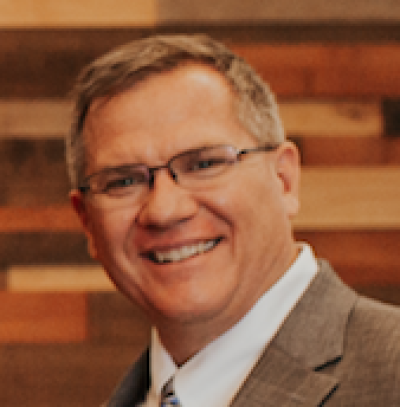Keeping faith while growing up evangelical (Part 2)

Editor's Note: This is the second of a two-part op-ed from an evangelical who kept his faith in response to evangelical-turned-atheist's Luke Douglas' op-ed, "I Lost My Faith in a Chick-fil-a." The first part of the op-ed series can be read here.
(3) Presuppositional Apologetics. Luke Douglas merely mentions the phrase “presuppositional apologetics” once. There is no reason to believe that he had a mature or developed understanding of this apologetic tradition except what was mediated to him through his “childhood icon,” Ken Ham.
I also learned of presuppositional apologetics. I read some of the key works of Cornelius Van Til as well as those who were influential scholars in the field: Greg Bahnsen, John Frame, and James Anderson. As part of my apologetic development I spent time in two summer seminars at Dr. Bahnsen’s house in California. The first time we were required to read two books (totaling nearly 800 pages) by atheist philosopher Michael Martin—Atheism: A Philosophical Justification and The Case Against Christianity. We then spent three days critically examining the arguments of Martin. The second seminar I attended was a detailed discussion of transcendental arguments—their nature, structure, and relevance for Christian apologetics.
Douglas does attempt to provide something of a description of the kinds of arguments he once believed. He writes:
“See, my whole upbringing’s teaching was that, apart from God, there would be no basis for morality, for purpose, or even for logic itself. If there were no higher power Whose nature exemplified right, there would be no such thing as wrong. The further removed I become from presuppositional apologetics, however, the less sense that whole line of argument makes.”
But given Douglas’ simplistic understanding of these issues—at least as described in his writing—he seems unaware of the more sophisticated versions of these arguments. I have actually defended versions of these arguments regarding morality and purpose in public forums. The argument from logic as that which needs a theistic base has been defending by philosophers James Anderson and Greg Welty in their paper "The Lord of Noncontradiction: An Argument for God from Logic."
Of course, Douglas offers no reasons as to why he does not accept these arguments and the alternative foundation for morality that he offers is not well thought out. He simply states, without evidence or reason, the following: “My morality post-evangelicalism is driven by tough questions about maximizing happiness in a complex world. It’s driven by empathy for my fellow beings …” This is a fine sounding sentiment, but is it rational given an atheistic worldview? Does an atheistic worldview have the needed philosophical resources to ground the ethic Douglas espouses? A Humanist ethic is not simply justified by rejecting theistic ethics. As William Craig argues, “The problem the humanist confronts is this: If theism is false, humanism doesn’t win by default. If theism is false, you’ve got to ask yourself, why wouldn’t nihilism be true? What proof do you have that nihilism is not the correct remaining alternative?”
It is not merely Christian philosophers or those with a theistic background that make this argument. A number of atheistic philosophers also draw the same conclusion. Consider the words from Tamler Somers and Alex Rosenberg from their article "Darwin's Nihilistic Idea: Evolution and the Meaninglessness of Life":
“But when we combine an evolutionary account of ethical beliefs with the conception of Darwinian theory as a ‘universal acid’… the result is moral nihilism. If all apparently purposive processes, states, events, and conditions are in reality the operation of a purely mechanical substrate neutral algorithm, then as far [as] explanatory tasks go, the only values we need attribute to biological systems are instrumental ones. An evolutionary account of moral belief will not only explain ethics but it will explain it away.”
This is an argument I find persuasive but it doesn’t appear that Douglas has yet to critically engage with this challenge. He doesn’t show how his commitment to naturalistic evolution—which was the primary cause of his leaving the faith of his youth—does not reduce his ethics to moral nihilism.
Where is Jesus?
Conspicuously absent from Luke Douglas’ account of his Christian past is the person of Jesus. For an evangelical, this is puzzling. Albert Einstein is noted as saying, “I am a Jew, but I am enthralled by the luminous figure of the Nazarene…. No one can read the Gospels without feeling the actual presence of Jesus.” Yet for Douglas, in his narration, Jesus hardly merits mention. Even in his recounting of his apologetics there is no concern for the historical rootedness of the Christian faith, nor for the historical arguments that have been marshaled for the resurrection of Jesus.
There was also very little in Douglas’ account about the personal dynamics of his relationship with Jesus Christ—a usual staple of evangelical spirituality. He does, however, mention, “spending hours on my knees in prayer, my entire emotional focus pinned on talking to God, only to hear nothing back.” This experience of “divine silence” is not an anomaly for those who follow Jesus. As philosopher Paul Moser notes, the existential problem of “divine hiddenness” can be said to even touch Christ Jesus himself in his tortured moments on the cross when he cries out, “My God, my God, why have you forsaken me?” (Mark 15.34) Thus, it may be that times and seasons of divine silence and the perceived absence of God’s presence may be a normal part of the Christian life.
In my own experience there have been those seasons of divine silence. I remember one particular time as a pastor struggling with the seeming absence of God. The usual antidotes to such times do not normally include philosophical theology but it was during this season I did read a piece that was helpful. Notre Dame philosopher, Michael Rea, wrote an essay entitled "Narrative, Liturgy, and the Hiddenness of God" which actually helped as part of the process of navigating that time. I bring this up, not to appeal to this essay as the panacea for all persons and times of seeming abandonment, but, rather, to show that there are intellectual resources available for such issues. Without meaning to demean Luke Douglas’ own internal crisis, I do wonder if his youthful and intellectually undeveloped faith might not have been helped by wise guidance and more mature reflection available from within the Christian tradition.
The Way Forward for Luke, Me, and Others
Luke Douglas has moved from evangelical Christian faith to atheism. He has embraced this new worldview with the zeal of a new convert. He has become the Executive Director for the Humanist Society of Greater Phoenix. In a recent interview Douglas speaks of his goal of campus outreach to attract a younger audience as well as “prostheletizing militant nonbelief.”
I also was raised in the evangelical Christian tradition and have stayed in. This was not as result of closing my mind to alternatives; my faith has been sharpened and honed over the past thirty some years since my time in high school. I, too, am still zealous for outreach on college campuses which is part of the reason I am associated with Ratio Christi which seeks to influence faculty and students on college campuses by giving them historical, philosophical, and scientific reasons to follow Jesus.
A large part of my journey has been shaped by the influence of Christian philosophers and theologians. This has served to both deepen and stabilize my faith. J. P. Moreland and Klaus Issler poignantly articulate the importance of Christian scholarship for the church in their book In Search of a Confident Faith: Overcoming Barriers to Trusting in God:
“A helpful strategy of offense is to develop a counterculture in which believers are regularly exposed to Christian scholars, sophisticated Christian alternatives to secular ideas, and thoughtful Christian books, magazines and journals. Note, such exposure is not important merely so Christians can come to develop Christian alternatives to secular ideas. It is not just secular ideas that must be countered. It is the process of secularization itself that must be confronted, including the process of socializing Christians into thinking of themselves as marginalized, weak, gullible, uneducated people. Thus, even if you are not yourself particularly well-educated, and even if you cannot understand the line of reasoning of articulate Christian scholars and carefully thought-out Christian books, exposure to the very existence of such things can provide you with confidence and remove doubt rooted in cultural background assumptions.”
I hope and pray the church will heed this admonition so that this might be one of the means used to stem the flow of those leaving the faith. One wonders what might have been the outcome if Luke had been exposed to such scholarship.
So for now, here’s where things stand: Luke left; I stayed. But Luke still can come home to Jesus—there is every reason to do so.
Richard Klaus is on staff with Ratio Christi. He also works part-time as Student Engagement Staff at Glendale Community College in the Philosophy & Religious Studies Department. The ideas articulated in this article do not necessarily represent the views of Glendale Community College or the Maricopa County Community College District.



























